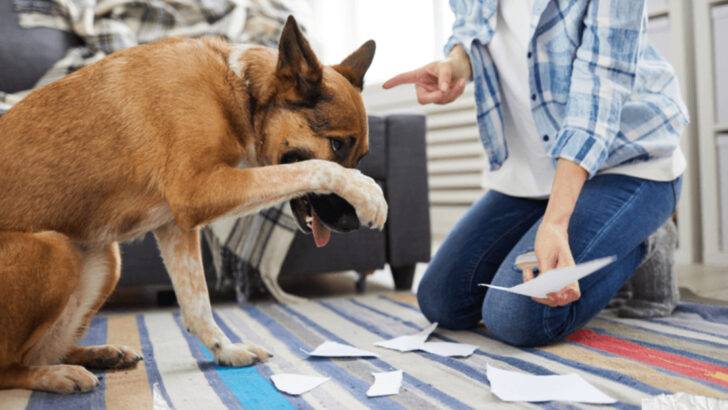Your dog notices everything—even the stuff you think doesn’t matter.
That sigh when they nudge you for attention? They felt it.
The rushed walks, the harsh tones, the ignored tail wags? Yep, those sting.
Dogs may not speak our language, but they read us like a book. And when we accidentally break their trust, it cuts deep in those soft, loyal hearts.
But here’s the good news: just as easily as we hurt their feelings, we can heal them—through small gestures, kind routines, and a little more patience.
Let’s break down the habits that silently chip away at your pup’s confidence—and the ones that make their tail wag harder than ever.
Ignoring Your Dog

Ignoring your dog when they’re seeking attention can lead to feelings of rejection. Imagine being brushed off by a loved one when you need them most. Dogs, like humans, crave companionship and acknowledgment. They might wag their tails excitedly or bring you their favorite toy, only to be met with indifference.
This can hurt their feelings, making them feel unloved and unwanted. Always take a moment to acknowledge their presence, even if it’s just a gentle pat or a kind word. Such small gestures can significantly reinforce their sense of belonging and boost their happiness.
Yelling at Your Dog
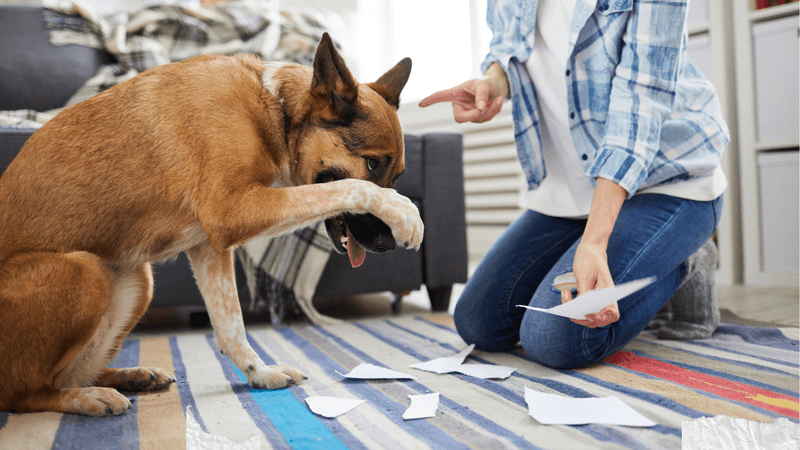
Raising your voice might seem like an effective way to grab your dog’s attention, but it can actually cause distress. Dogs are sensitive to tone and can easily pick up on your emotions. Yelling can make them feel threatened and anxious.
Instead, use a calm, assertive tone to communicate. Dogs respond better to clear commands and positive reinforcement. By maintaining a composed demeanor, you can guide them more effectively without fear or confusion. Building a relationship based on respect and understanding fosters trust and a stronger bond.
Inconsistent Rules
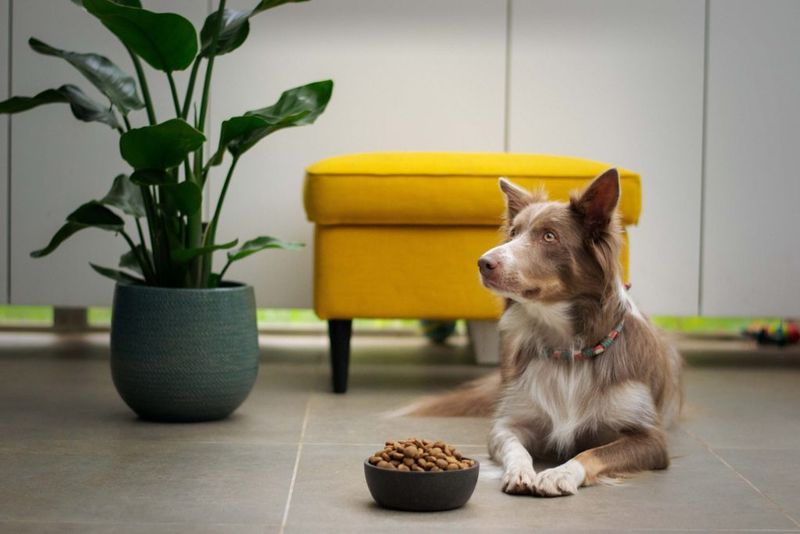
Dogs thrive on consistency. When rules change frequently, it can create confusion and insecurity. Imagine living in a world where the rules are constantly shifting; it’s unsettling. Dogs experience this when rules around the house are inconsistent.
If one day they’re allowed on the couch and the next they’re not, it sends mixed signals. Establishing clear rules and sticking to them helps your dog understand their boundaries, leading to a more secure and stable environment. Consistent training builds confidence and trust.
Neglecting Exercise

Exercise is essential for a dog’s physical and mental well-being. Neglecting this need can lead to frustration and boredom. Picture being cooped up indoors with no outlet for your energy; it’s stifling. Dogs need regular walks and playtime to stay happy and healthy.
Without adequate exercise, dogs may develop behavioral issues or become lethargic. Prioritize daily activities that suit your dog’s breed and energy level. Engaging in outdoor adventures not only keeps them fit but also strengthens your bond through shared experiences.
Lack of Socialization
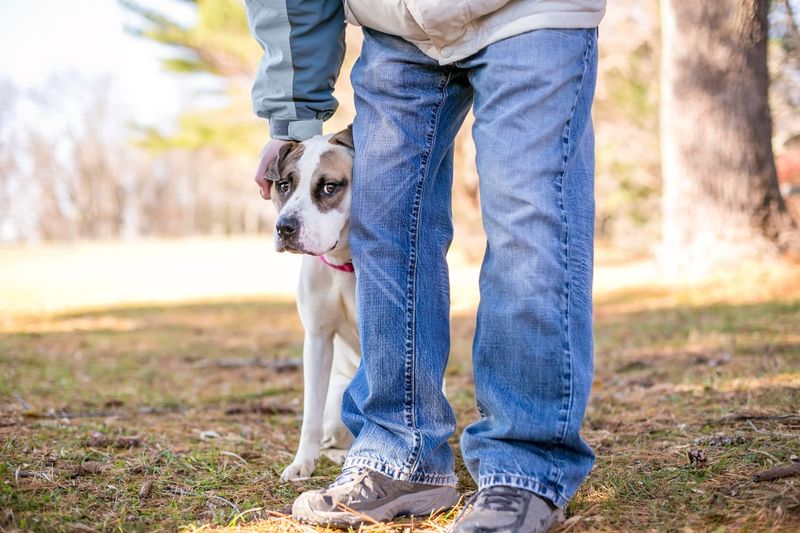
Socialization is crucial for a well-rounded dog. Without it, dogs can become anxious or fearful of new experiences. Imagine never being exposed to the outside world; it’s daunting. Dogs benefit from meeting new people and animals in various settings.
Introducing them to different environments boosts their confidence and reduces anxiety. Regular trips to the park or dog-friendly events help them adapt to new situations. A well-socialized dog is happier, more relaxed, and better equipped to handle life’s uncertainties.
Ignoring Body Language
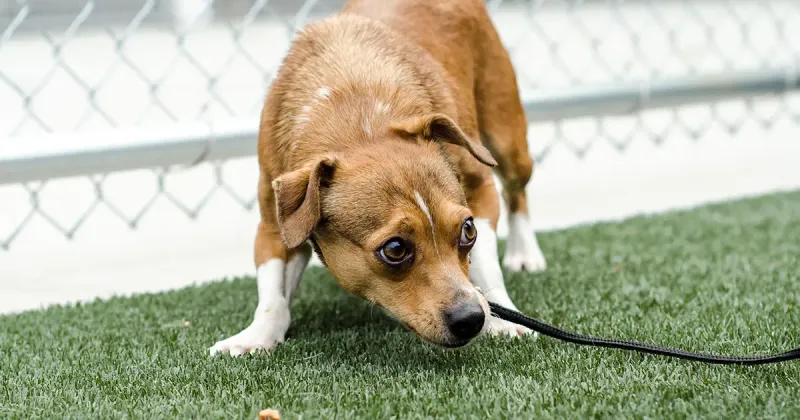
Dogs communicate through body language, and ignoring these signals can lead to misunderstandings. Their wagging tail, lowered ears, or tucked tail all convey specific emotions. Disregarding these cues can result in stress or fear.
Paying attention to these signals allows you to respond appropriately, ensuring your dog feels heard and understood. Recognizing signs of distress or discomfort enables you to intervene and provide comfort. Being attuned to your dog’s non-verbal communication strengthens trust and empathy.
Skipping Grooming Sessions
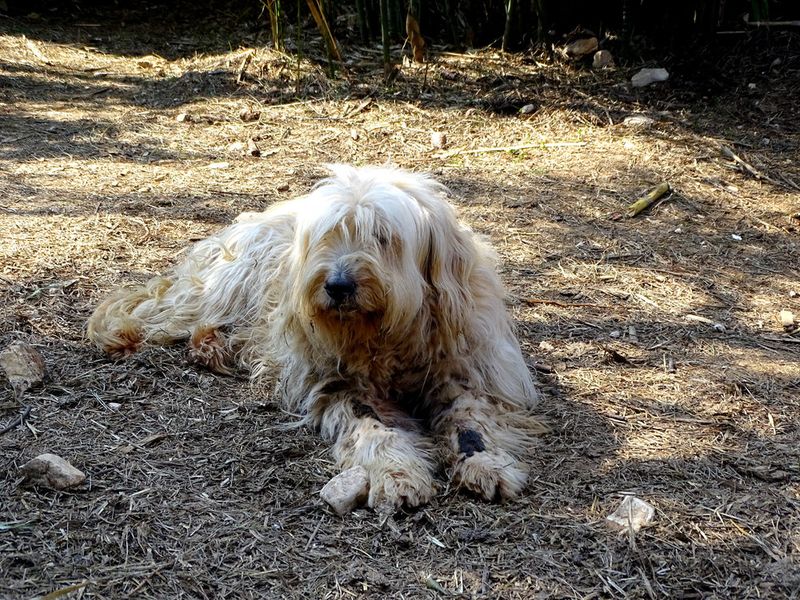
Regular grooming is not just about aesthetics; it’s an essential part of your dog’s health. Skipping grooming sessions can lead to discomfort and even health issues. Imagine the irritation of tangled hair or itchy skin.
Dogs feel better when they’re clean and well-groomed. Regular brushing and bathing prevent matting and skin problems, making them look and feel their best. Grooming also provides an opportunity for bonding, allowing you to care for them lovingly while checking for any abnormalities.
Not Listening to Vocal Cues

Dogs vocalize to communicate, and ignoring these cues can lead to frustration. Each bark, whine, or growl has a distinct meaning, whether it’s a call for attention, a warning, or an expression of joy. Disregarding their vocalizations can make them feel unheard.
Taking time to understand these sounds enhances communication and strengthens your relationship. Responding to their vocal cues shows that you value their attempts to interact, building trust and mutual respect.
Rough Handling
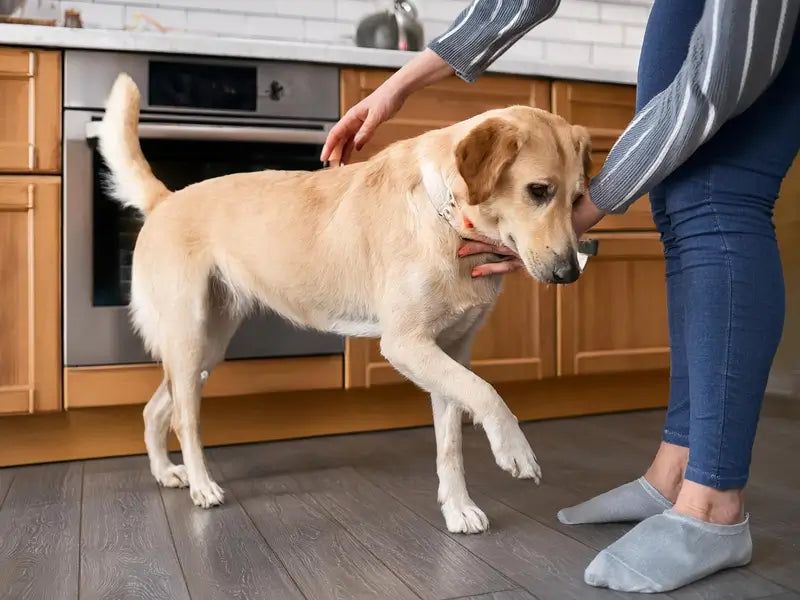
Handling your dog roughly, even unintentionally, can be distressing. Dogs are sensitive creatures, and harsh physical interactions can make them wary or fearful. Imagine someone tugging at your arm unexpectedly; it’s unsettling.
Gentle, respectful touch reassures them and fosters a sense of security. Always approach with care and be mindful of your dog’s comfort. Positive physical interactions create a safe environment where your dog feels cherished and protected.
Leaving Them Alone for Too Long
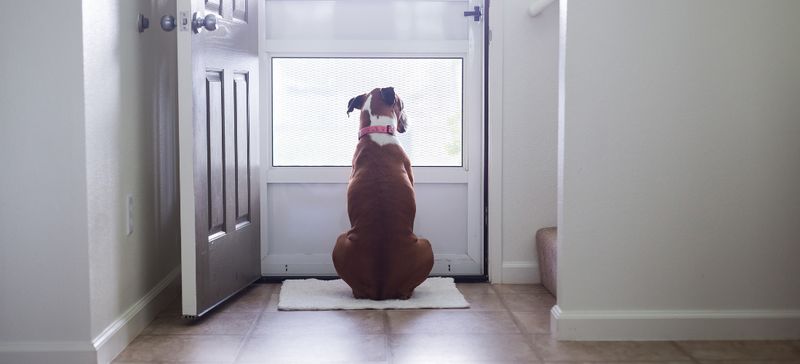
Dogs are social animals that thrive on companionship. Leaving them alone for extended periods can lead to feelings of abandonment. Picture being isolated for hours without contact; it’s disheartening. Dogs crave human interaction to feel secure and content.
Balancing time alone with quality time together ensures their emotional well-being. Consider hiring a pet sitter or arranging playdates if you’re away frequently. Ensuring they have company reduces anxiety and strengthens your bond.
Teasing
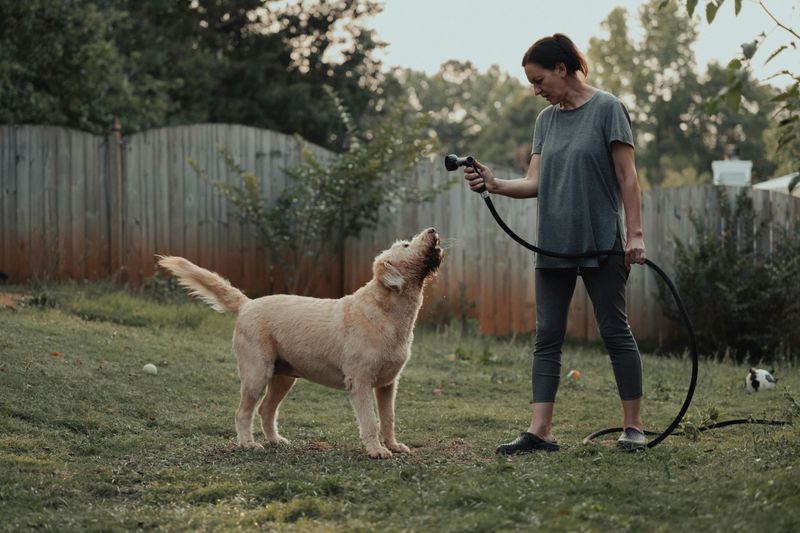
Teasing your dog, even playfully, can lead to confusion and mistrust. What might seem like harmless fun to a human can be bewildering to a dog. Imagine being taunted with something you can’t have; it’s frustrating.
Dogs rely on clear communication and understanding. Avoid games that might lead to mixed messages or stress. Opt for activities that foster cooperation and mutual enjoyment, enhancing your connection.
Overfeeding Treats
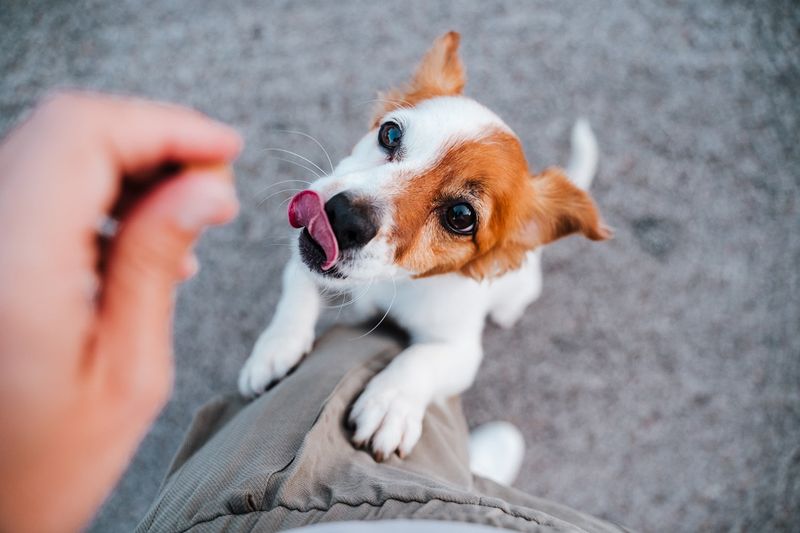
While treats are a great way to reward your dog, overfeeding can lead to health issues. Imagine indulging in too many sweets; it’s enjoyable but not without consequences. Dogs don’t always know when to stop.
Offering treats in moderation ensures they stay healthy and fit. Balance rewards with nutritious meals to maintain their well-being. A healthy diet contributes to a happy, active dog.
Using Physical Punishment
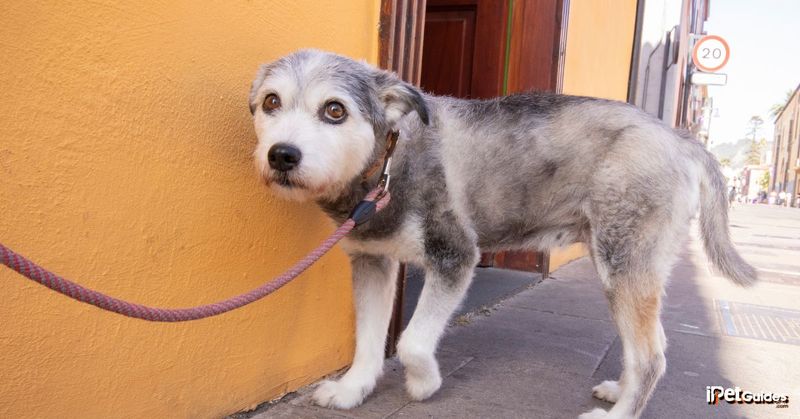
Physical punishment can damage your dog’s trust and lead to fear-based behaviors. Imagine living in fear of being hurt; it creates anxiety and mistrust. Dogs don’t understand physical punishment as a form of discipline.
Positive reinforcement is a more effective training method. Rewarding good behavior encourages repetition and helps them learn in a supportive environment. Building trust through kindness strengthens your bond.
Ignoring Health Issues
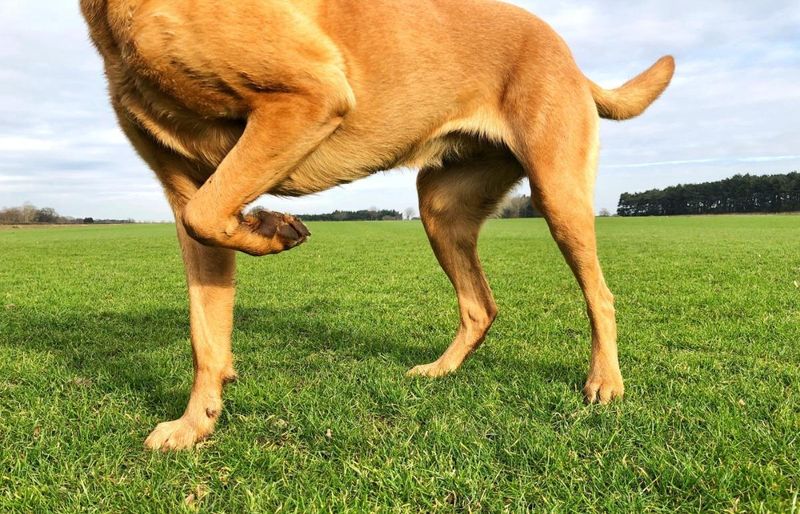
Overlooking your dog’s health issues can lead to bigger problems. Imagine enduring pain or discomfort without relief; it’s distressing. Dogs rely on their owners to notice changes in their behavior or physical condition.
Regular vet check-ups and prompt attention to health concerns ensure your dog stays healthy and happy. Being proactive about their health shows that you care deeply about their well-being.
Not Providing Mental Stimulation

Mental stimulation is as important as physical exercise for dogs. Without it, they may become bored or develop destructive behaviors. Imagine having nothing to engage your mind; it’s tiresome.
Engage your dog with interactive toys or training sessions that challenge their intelligence. Providing opportunities for mental engagement keeps them happy and well-adjusted.
Positive Reinforcement Training
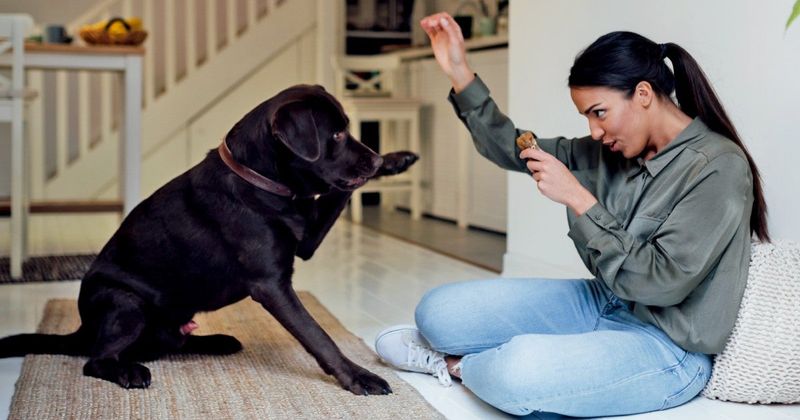
Using positive reinforcement in training builds a foundation of trust and respect. Imagine being rewarded for your hard work; it’s encouraging. Dogs thrive on praise and treats when they follow commands.
This method strengthens your bond and boosts their confidence. It fosters a positive learning environment where dogs feel motivated to learn and please.
Daily Walks Together

Regular walks with your dog strengthen your bond and improve their well-being. Picture starting your day with a refreshing stroll; it’s invigorating. Dogs enjoy exploring their surroundings and spending quality time with their owners.
These walks provide mental and physical stimulation, keeping them healthy and content. Sharing this time together fosters a deeper connection.
Consistent Training Sessions
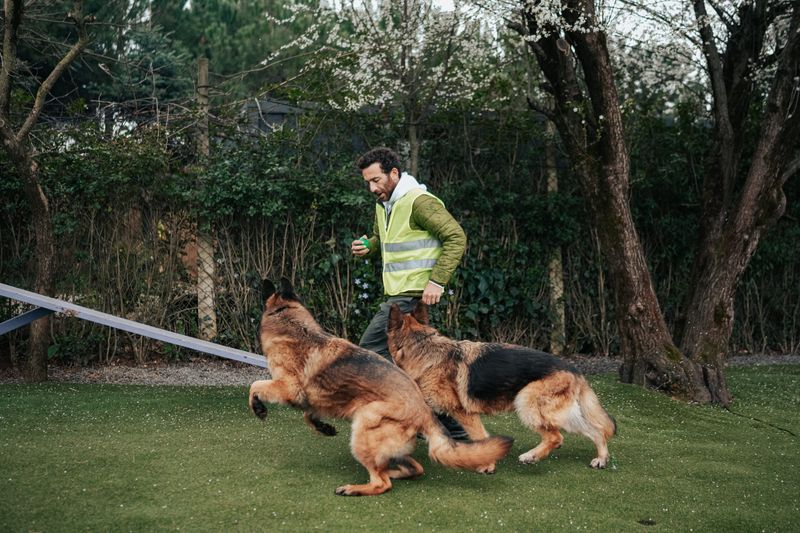
Consistency in training sessions helps dogs learn and retain commands. Imagine trying to learn something new without regular practice; it’s challenging. Dogs benefit from routine and repetition.
Holding frequent training sessions reinforces their learning and builds trust. It creates a reliable structure that helps them feel secure.
Quality Playtime
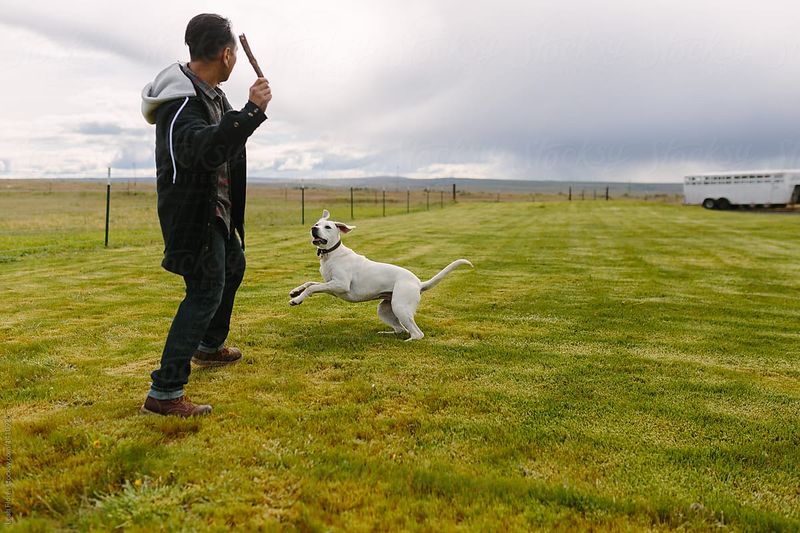
Investing time in play strengthens your bond with your dog. Imagine the joy of playing your favorite game; it’s exhilarating. Dogs love engaging activities like fetch or tug-of-war.
These playful interactions provide exercise and mental stimulation, ensuring a happy, healthy dog. Regular playtime builds a joyful and trusting relationship.
Open Communication
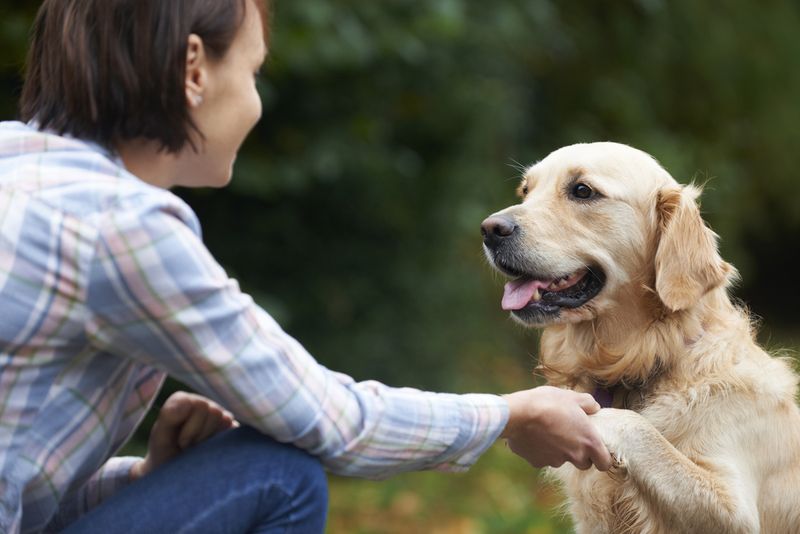
Dogs understand more than we think, and communicating openly strengthens your connection. Imagine having a friend who listens and responds thoughtfully; it’s comforting. Dogs pick up on vocal tones and gestures.
Using a gentle voice and clear commands fosters a nurturing environment. This open communication builds trust and deepens your relationship.
Respecting Their Space
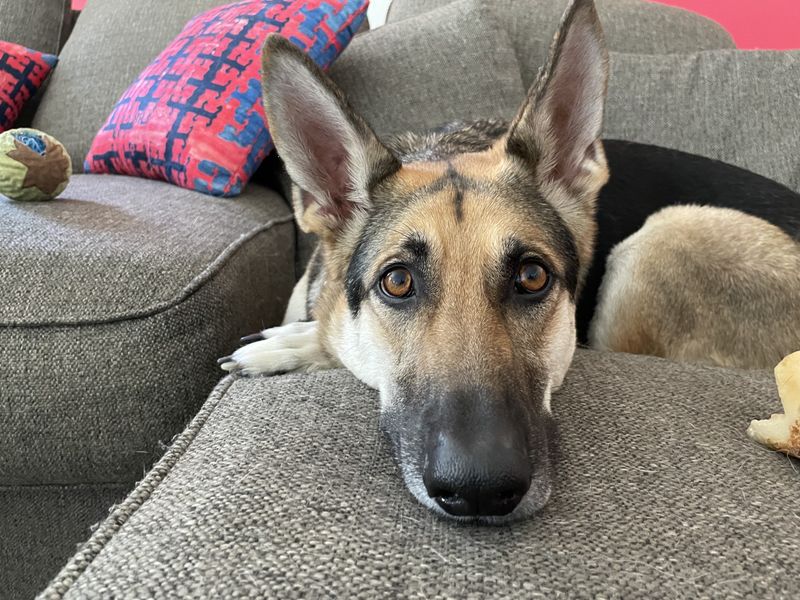
Respecting your dog’s personal space shows understanding and consideration for their needs. Imagine feeling overwhelmed and needing a quiet moment; it’s reassuring to have space.
Dogs appreciate having a safe spot to retreat to when needed. Allowing them this autonomy strengthens their confidence and trust in you.
Gentle Grooming
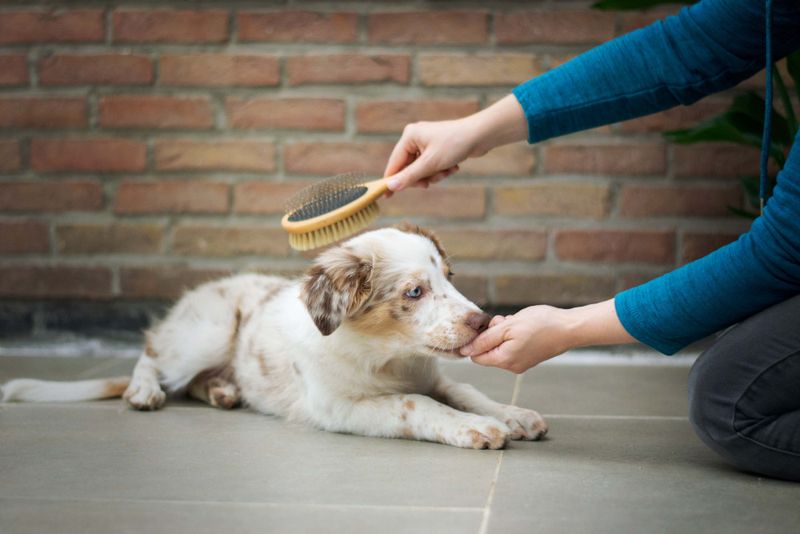
Gentle grooming sessions are more than just maintenance; they’re acts of love. Imagine the soothing sensation of a gentle massage; it’s relaxing. Dogs enjoy these moments of care and attention.
Regular grooming strengthens your bond and ensures their comfort and well-being. It’s a time to focus on them, showing love and care.
Balanced Diet

Providing a balanced diet ensures your dog’s vitality and happiness. Imagine enjoying a delicious, nutritious meal; it fuels your body and spirit. Dogs thrive on quality food that meets their dietary needs.
A nutritious diet supports their health and well-being, keeping them energetic and content. It shows your commitment to their care.
Regular Vet Visits
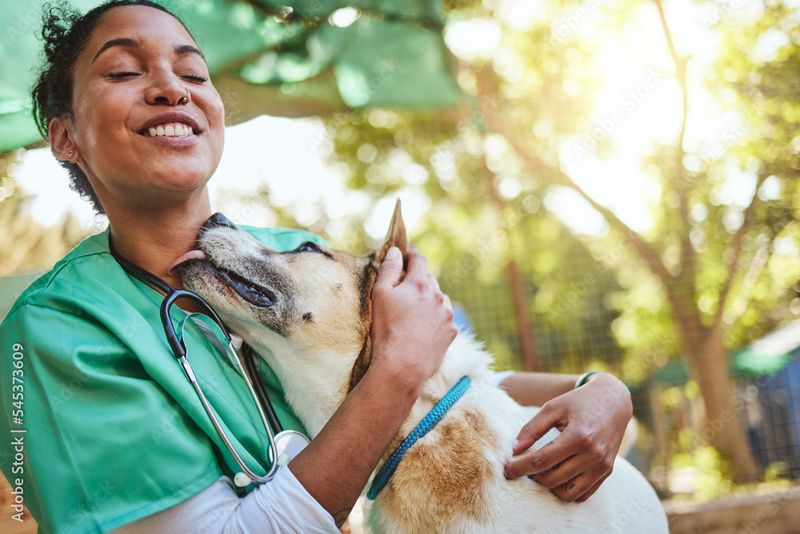
Routine vet visits are key to maintaining your dog’s health. Imagine the reassurance of regular health check-ups; it’s reassuring. Dogs rely on these visits to catch any health issues early.
A proactive approach to their health strengthens your trust and commitment to their well-being. It ensures they lead a long, healthy life.
Showing Affection
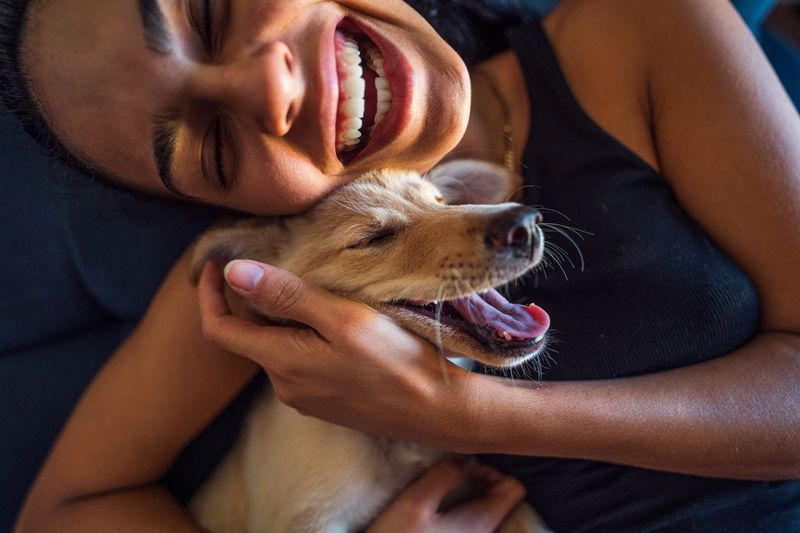
Showering your dog with affection fosters a loving relationship. Imagine the warmth of a comforting hug; it’s heartwarming. Dogs crave tangible expressions of love.
Regular cuddles and pats reinforce your bond, making them feel cherished and secure. Affectionate gestures are powerful in building trust and happiness.

